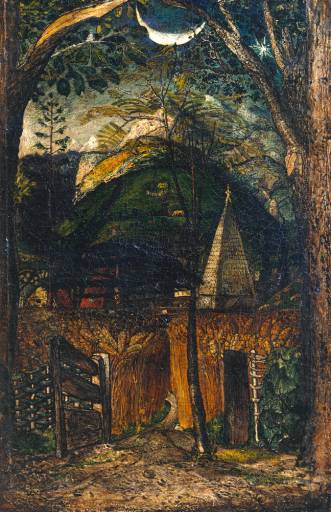Introduction to Modern Art 20/10/03 – Romanticism
Slide 1: Constable The HayWain
John Constable (1776-1837) painted this scene during the winter of 1820-1821. The view is of Flatford Millstream and of Wily Lott ‘s cottage (officially renamed as’Wily Lott’s House ‘). The painting was originally titled ‘ Landscape : Noon ‘ but became better known as’ The Haywain ‘. (painted at 45)
http://www.secrethour.com/pictures/wily/cottage4.jpg
Slide 2: Turner Rain, Steam and Speed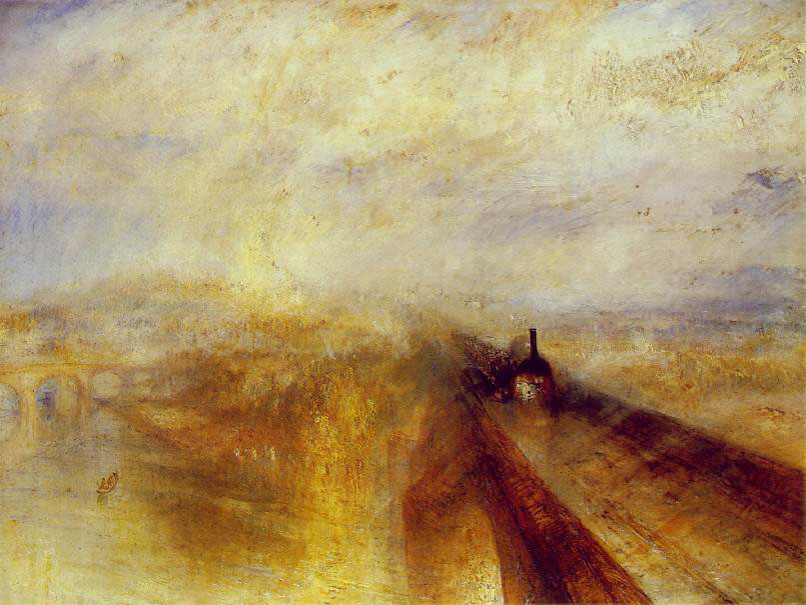
Slide 3: Friedrich The Wanderer Above the Mists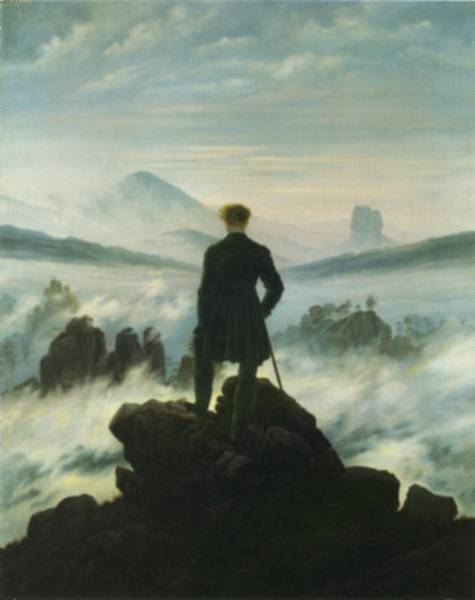
Wanderer above the Sea of Fog 1818; Oil on canvas, 94 x 74.8 cm; Kunsthalle, Hamburg The German romantic painter Caspar David Friedrich, b. Sept. 5, 1774, d. May 7, 1840, was one of the greatest exponents in European art of the symbolic landscape.Some of Friedrich’s best-known paintings are expressions of a religious mysticism. Even some of Friedrich’s apparently nonsymbolic paintings contain inner meanings, clues to which are provided either by the artist’s writings or those of his literary friends. For example, a landscape showing a ruined abbey in the snow, Abbey with Oak Trees (1810; Schloss Charlottenburg, Berlin), can be appreciated on one level as a bleak, winter scene, but the painter also intended the composition to represent both the church shaken by the Reformation and the transitoriness of earthly things.
Slide 4: Palmer In a Shoreham Garden
Richly painted in style,In a Shoreham Garden imitates the technique of an oil painting.Although it’s a watercolor, the pigment has been applied so generously to the surface, creating depth and texture, representative of the natural environment.At the center of this colorful and complex garden, our eyes are first drawn to a large tree.The bark of the trunk, covered with lichens and moss, becomes accentuated by the beautiful foliage of pink and white flower blossoms that flourish among its branches.An abundance of trees, bushes, flowers, and plants resides on both the left and right side of the composition.Predominately yellow and green colors take over, as red, white, and black outlines contribute to the variety of foliage that exists in the garden.The yellow and green also serves as a dynamic contrast between the pink and white tree that we are first drawn to.An interesting path extends from the foreground toward the back of the composition, leading us to the focal point.Dreamy, mysterious, and ghost – like, the figure of a woman in a long red and white dress seems to be moving or floating toward the right area of the canvas.The abrupt view of a smaller, distant figure, dressed in such dramatic colors of red and white, seems very unusual to the rest of the painting.Perhaps this element of color is what creates such a strong and vibrant focal point to the painting.Finally, near the foreground, at the right – hand edge of the design, our eyes are drawn to a wooden structure, suggesting a shed or house.(Lister, The Paintings of Samuel Palmer, 18 – 22)
What is so imperative about this painting is that Palmer was able to achieve freedom within the paint, creating a vivid and imaginative piece, very different from his previous work.As an artist, Palmer ‘s environment and surroundings influenced his work in many ways.Some believe In a Shoreham Garden was the turning point in Palmer ‘s life, which opened him up to a new level of spirituality and discovery.
Living in London for a large portion of his life, Samuel Palmer grew more and more uncomfortable within this environment.He wanted to be surrounded by an abundance of
Slide 5: Runge Night
Slide 6: Martin The Deluge
Slide 7: Ingres The Apotheosis of Homer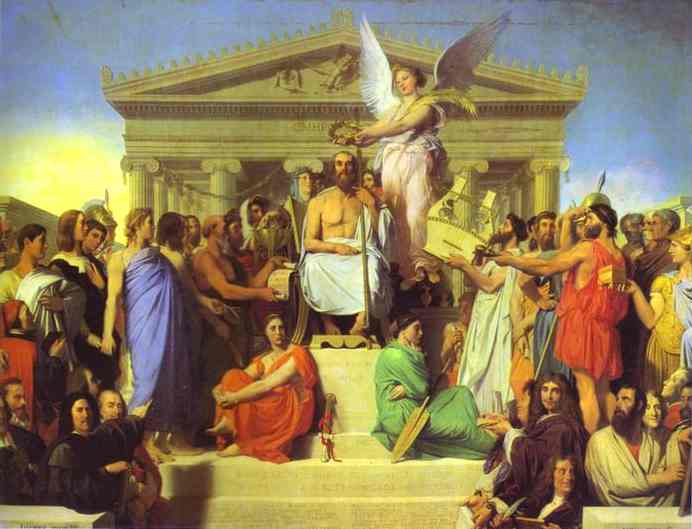
Artist: Jean-Auguste Dominique Ingres
Artist’s Lifespan: 1780 – 1867
Title: The Apotheosis of Homer
Date: 1827
Location of Origin: France
Medium: Oil on canvas
Original Size: 12 ft 8 in x 16 ft 11 in
Style: Neoclassicism
Genre: History
Location: Louvre, Paris
From website http://www.newmusicclassics.com/orpheus_18.html
J.-A.-D. Ingres was a direct heir to the neoclassicism of David, in whose studio at the age of twenty he had become a pupil and aide. A recipient of the highly coveted Prix de Rome in 1801, Ingres ‘s studies in Italy had to be postponed until 1807 due to the precarious state of the French economy. He remained in Italy for some years after the conclusion of his four years of study, assimilating the historical art and architecture at Rome, Florence, and other cities. When his fortunes were reversed by the poor reception of The Martyrdom of St Symphorian (Salon, 1834), Ingres returned to Rome and assumed the directorship of the French School, where he remained for seven more years. Upon his return to France, his former place of honor as a disciple of David and artistic scion of Leighton Elijah in the Wilderness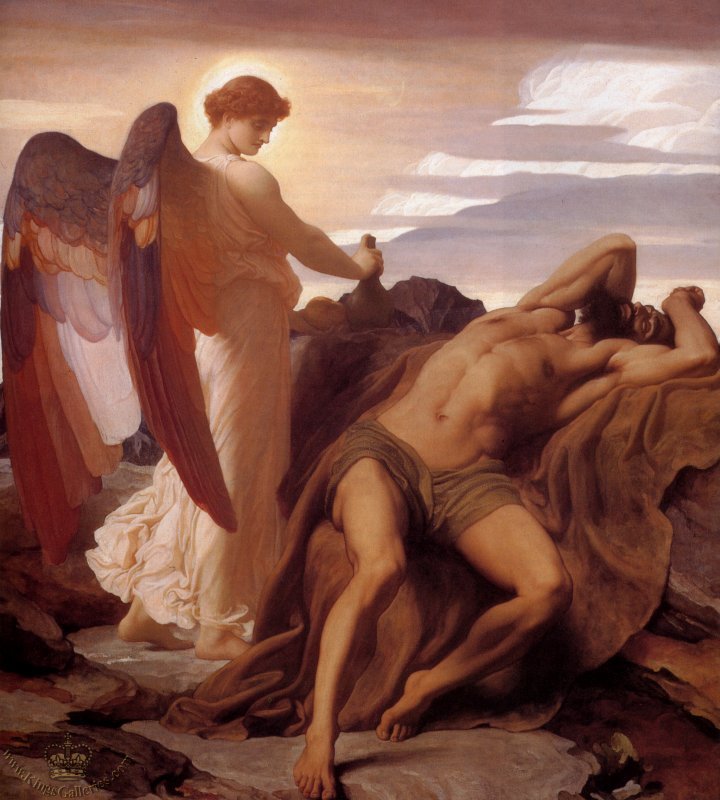
Slide 9: Delacroix The Barque of Dante and Virgil
Slide 10: Delaroche The Execution of Lady Jane Grey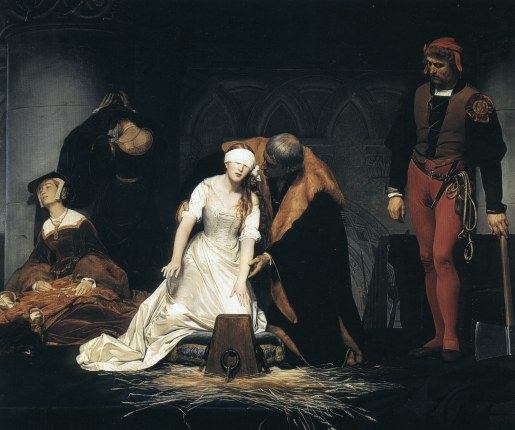
Slide 11: Forster Giotto as Shepherd Boy
I cannot find this image
Slide 12: Reynolds Self-Portrait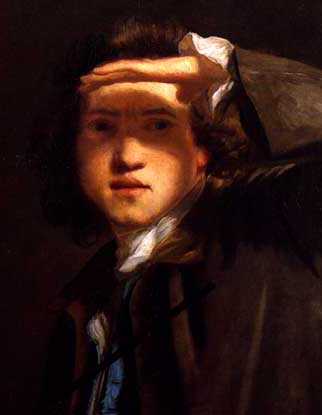
Slide 13: Phillips William Blake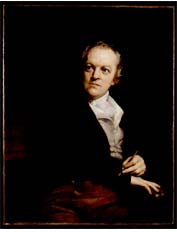
Slide 14: Turner Snow Storm: Hannibal and his Army Crossing the Alps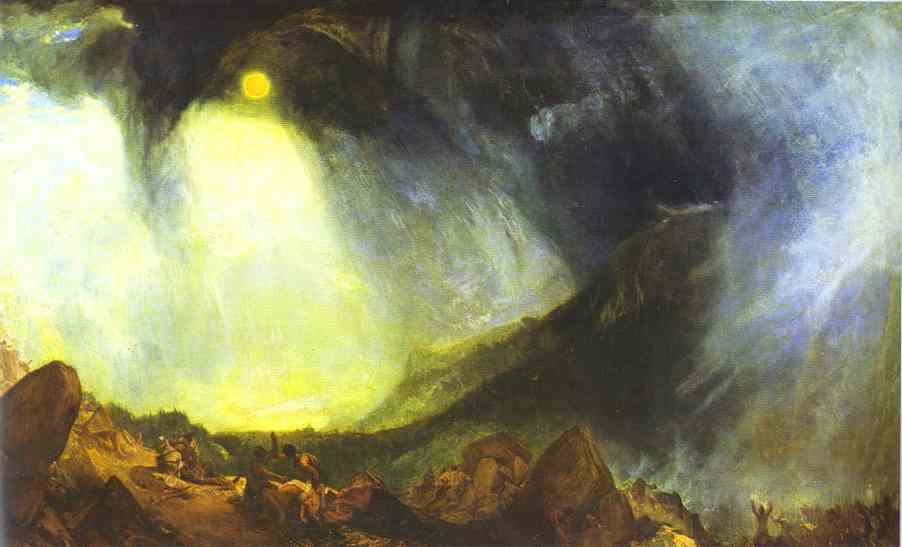
Slide 15: Martin The Bard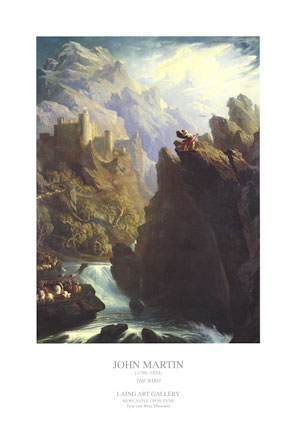
Slide 16: Constable Landscape: The Leaping Horse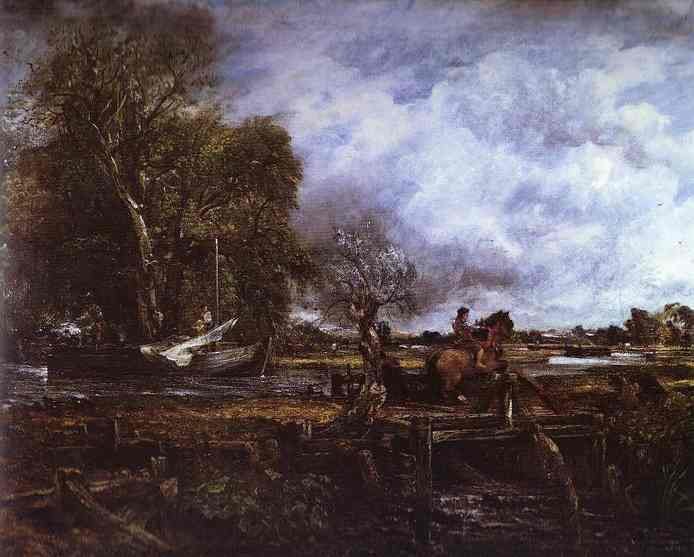
Slide 17: Constable A View of Dedham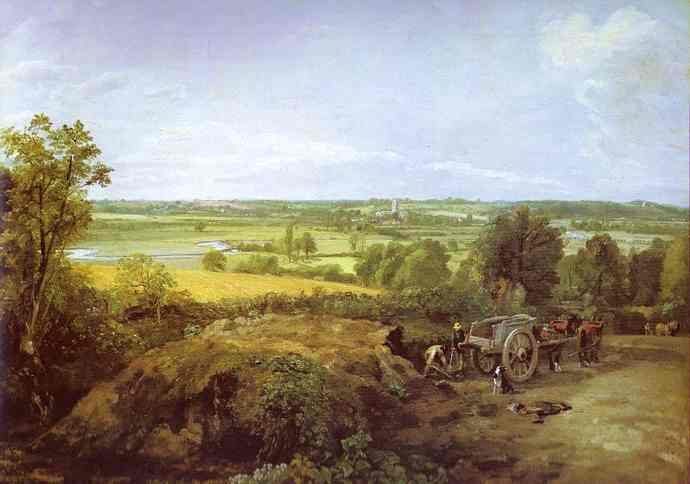
Slide 18: Runge Morning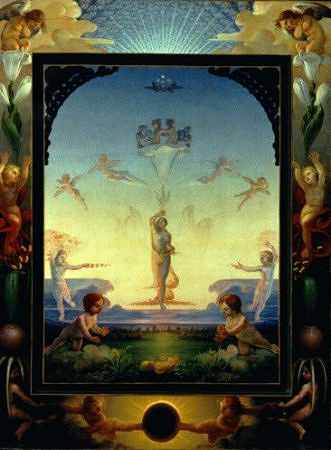
Slide 19: Gericault The Raft of the Medusa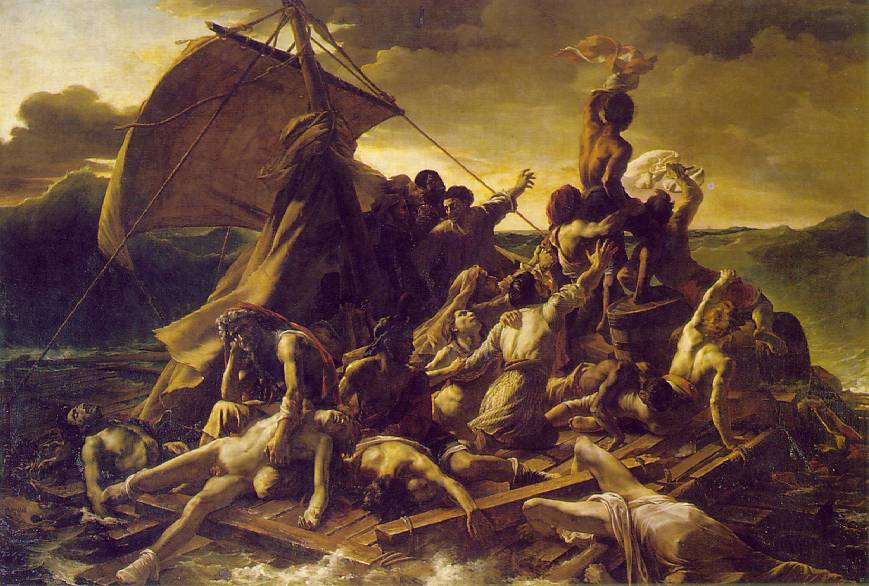
Slide 20: Gericault Severed Heads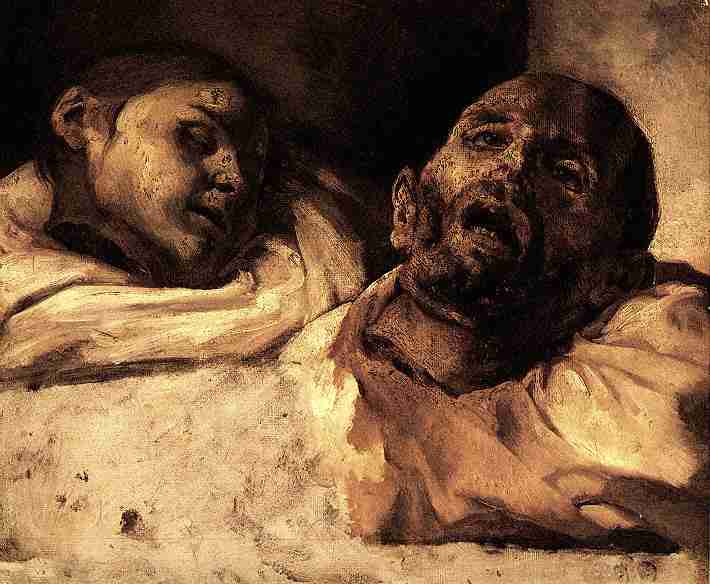
Slide 21: Delacroix The 28th of July: Liberty Leading the People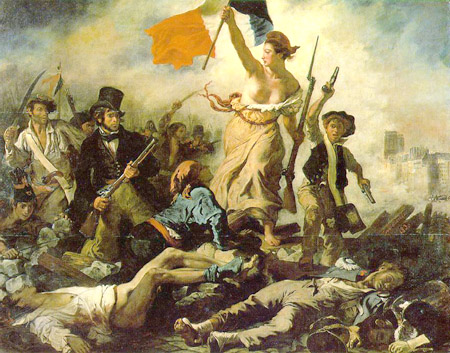
Slide 22: Goya The executions of the Third of May 1808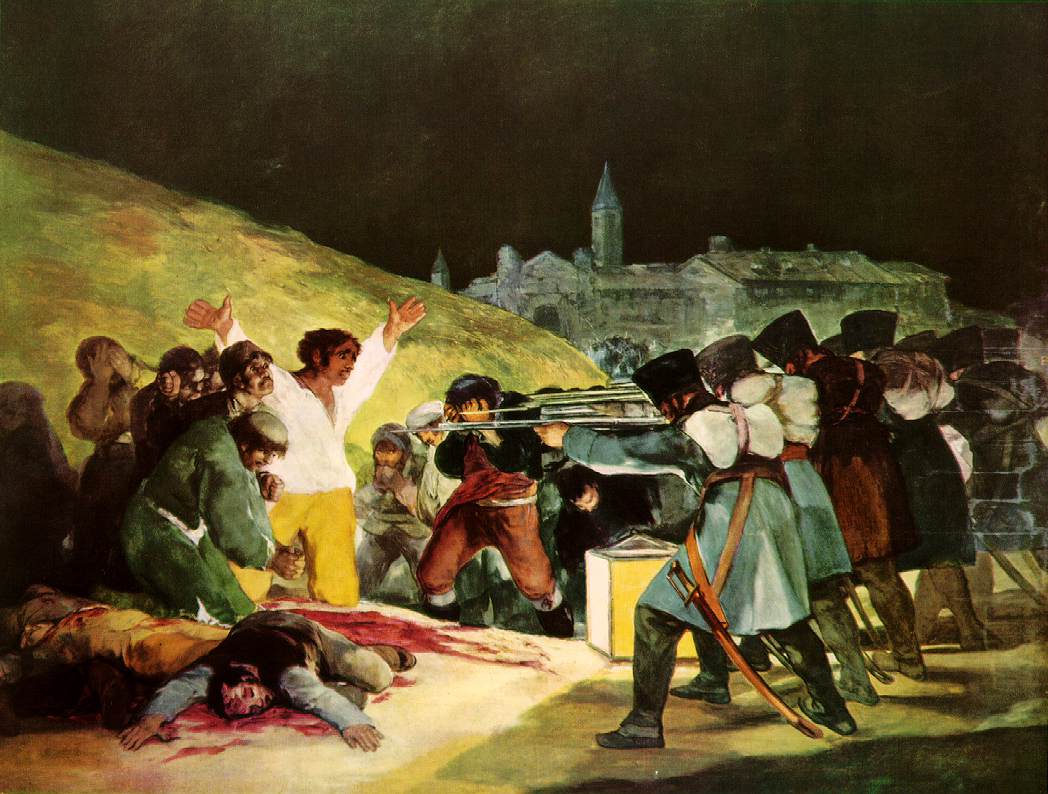
Slide 23: Friedrich Abbey in the Oak Forest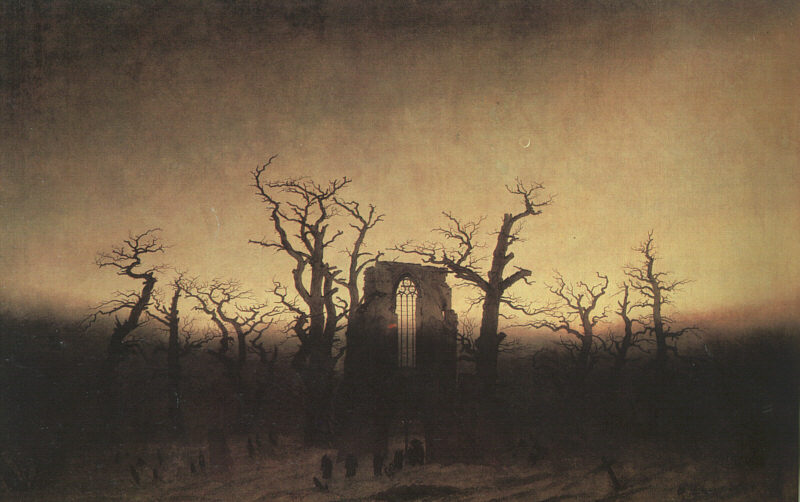
Slide 24: Maclise Sir Francis Sykes and his Family(image not found)
Slide 25: Overbeck Portrait of Franz Pforr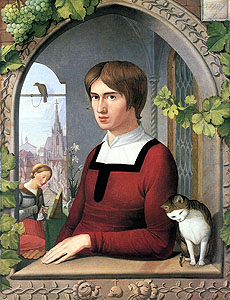
Slide 26: Delacroix The Death of Sardanapalus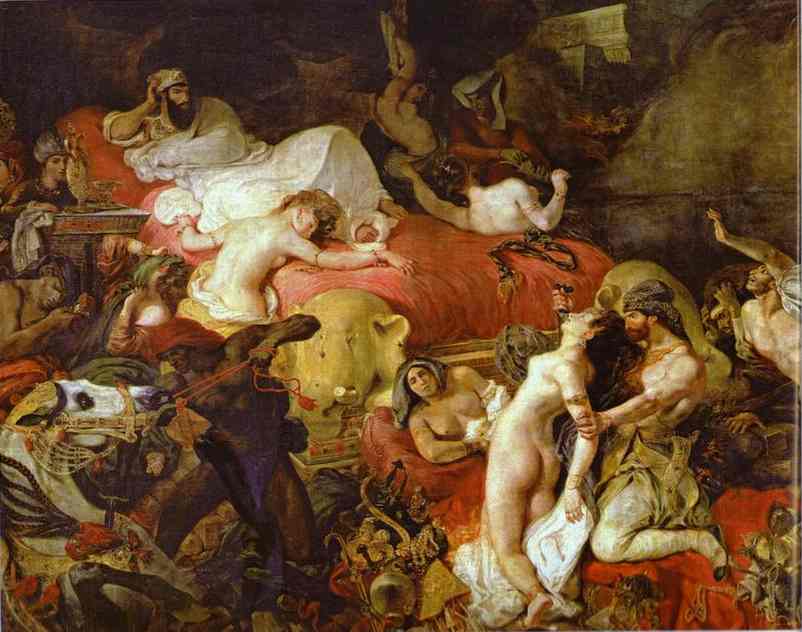
Slide 27: Delacroix Women of Algiers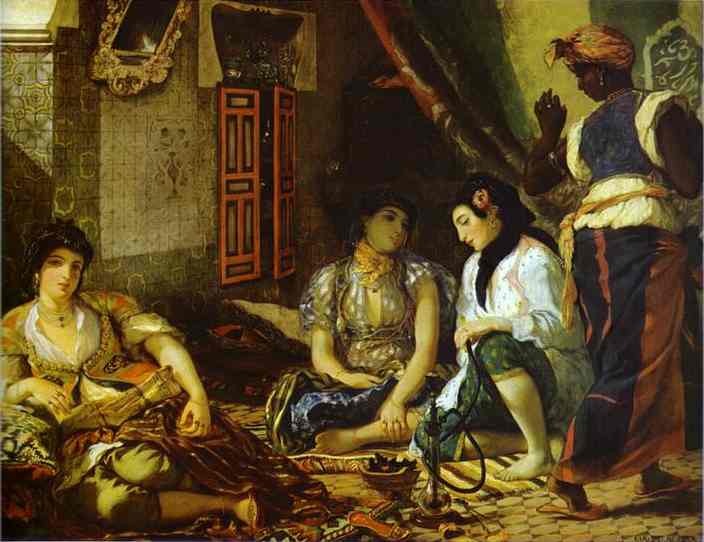
Slide 28: Runge The Hulsenbeck Children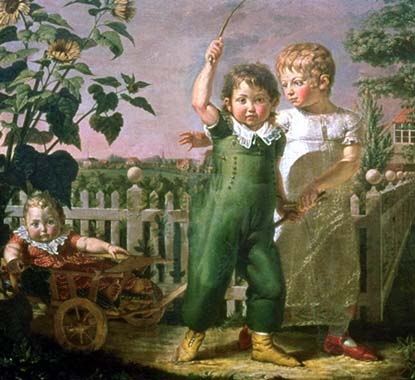
Slide 29: Blake God Judging Adam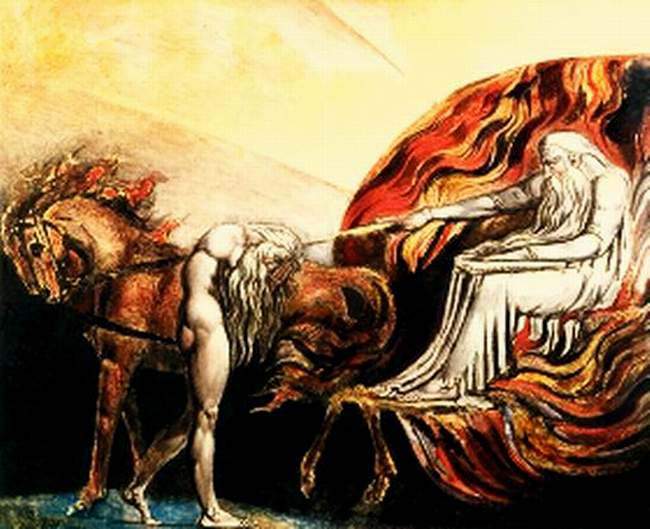
Slide 30: Blake The Ghost of a Flea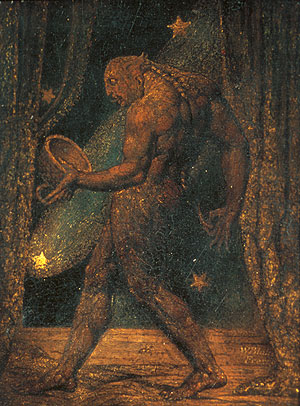
Slide 31: Palmer A Hilly Scene